Finding the appropriate food for a cat with a delicate stomach can be challenging, and you may be hunting for food that won’t hurt her every time she eats.
Many commercial cat food brands contain fillers and artificial ingredients that may worsen your cat’s condition.
It’s great to know that numerous homemade cat food recipes are tasty and nutritious and won’t upset your pet’s stomach.
This article provides vet-approved recipes and tips to soothe and nourish the sensitive feline digestive system.
Upset Stomachs in Cats
Cats can experience upset stomachs due to various factors, such as dietary changes, food allergies, or gastrointestinal issues.
What is a Sensitive Stomach?
A sensitive stomach in cats often manifests as digestive issues caused by stress or nutritional deficiencies. This condition is common enough that cat owners must be vigilant about what their pets eat.
Common Causes and Symptoms of Sensitive Stomachs in Cats
Common causes and symptoms of sensitive stomachs in cats can result from factors as simple as dietary changes or severe as hormonal disorders such as hyperthyroidism.
This condition frequently leads to unsettling digestive issues in feline pets, sometimes disrupting their standard behavior patterns like eating habits or playfulness.
The visible signs of an upset stomach are licking the lips excessively, vomiting, and refusing to eat- if not addressed promptly, it could lead to chronic ailments like pancreatitis or liver disease.
Benefits of Homemade Cat Food for Sensitive Stomachs
Homemade cat food offers several benefits for cats with sensitive stomachs, including controlling ingredients and allergens and personalizing the food to meet specific dietary needs.
Control Over Ingredients and Allergens
Homemade cat food provides the unique advantage of carefully selecting each ingredient in their meal, ensuring high quality and safety for your kitty.
This method is instrumental in eliminating common allergens or problematic processed materials sometimes found in commercial cat foods, making it an ideal option for upset tummies.
Personalization for Specific Dietary Needs
By preparing homemade meals, you can tailor the ingredients to your cat’s requirements, ensuring they receive nutrients without any potential allergens or irritants.
This personalization allows you to cater to their sensitive stomachs by avoiding common triggers such as white potatoes or rice.
With vet-approved homemade cat food recipes available, you can confidently provide a customized diet that promotes digestive health and alleviates discomfort for your beloved feline companion.
Top 6 Recipes for Homemade Cat Food for Sensitive Stomachs
If you’re interested in making your own cat food, there are plenty of recipes to choose from. In this article, we’ll share six recipes to help you get started and adjust the ingredients according to your cat’s needs.
#1. Bland Chicken and Rice Recipe
When it comes to soothing an upset stomach in cats, a bland chicken and rice recipe is often recommended by veterinarians as a short-term solution. This simple homemade cat food consists of poached chicken and white rice, which helps rest the digestive tract and reduce vomiting and diarrhea.
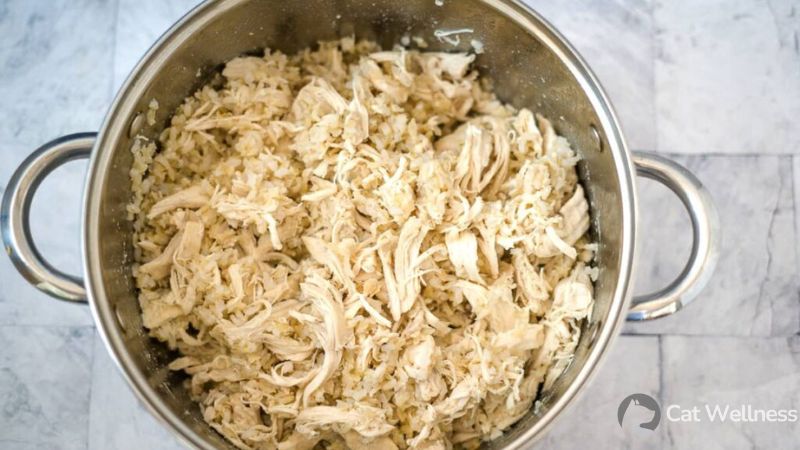
Ingredients:
- 1 pound ground chicken (with or without skin),
- 1/2 cup cooked white rice,
- 1 tbsp finely chopped parsley.
Instructions:
1. Add water to the ground chicken in a pot over low heat, stir well and cook until thoroughly cooked.
2. Clear from heat and allow to cool.
3. Drain excess liquid from the meat when cooled and add 1/2 cup of cooked rice.
4. Puree this mixture, then add parsley and remaining rice.
5. Mix well before serving to your cat.
#2. Salmon and Rice Recipe
The Salmon and Rice Recipe is a nutritious, gentle, homemade cat food for felines with upset stomachs. This simple recipe calls for just two ingredients: salmon and rice. Salmon provides a good source of lean protein, omega-3 fatty acids, and essential vitamins to support your cat’s overall health.
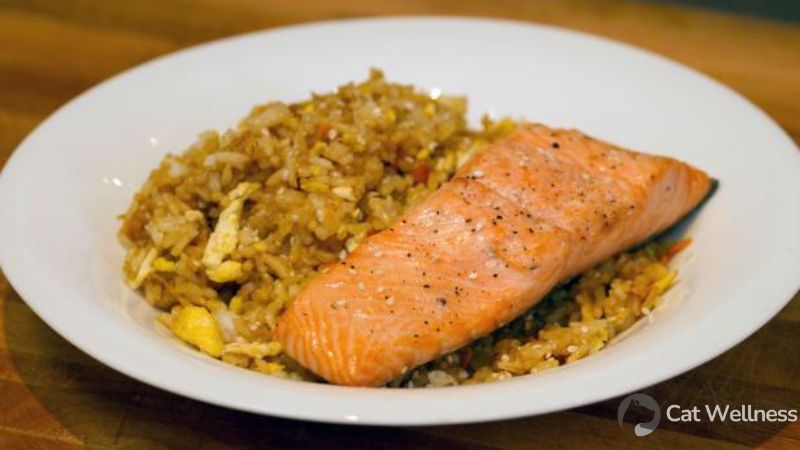
Ingredients:
- 1 cup cooked white rice;
- ½ cup cooked salmon;
- ¼ cup plain yogurt;
- 1 teaspoon olive oil;
Instructions:
1. Add all ingredients to a blender or food processor and blend until smooth.
2. Pour the mixture into an ice cube tray and freeze for several hours.
3. Take out the frozen cat food cubes and store them in a freezer-safe bag.
4. Feed as needed, thawing the cubes in the refrigerator before serving.
#3. Turkey and Sweet Potato Recipe
The Turkey and Sweet Potato Recipe is a highly recommended option. This homemade cat food recipe combines lean turkey meat and nutrient-rich sweet potatoes, which are gentle on the digestive system.
The high protein content in turkey helps support muscle health, while sweet potatoes provide essential vitamins and minerals.
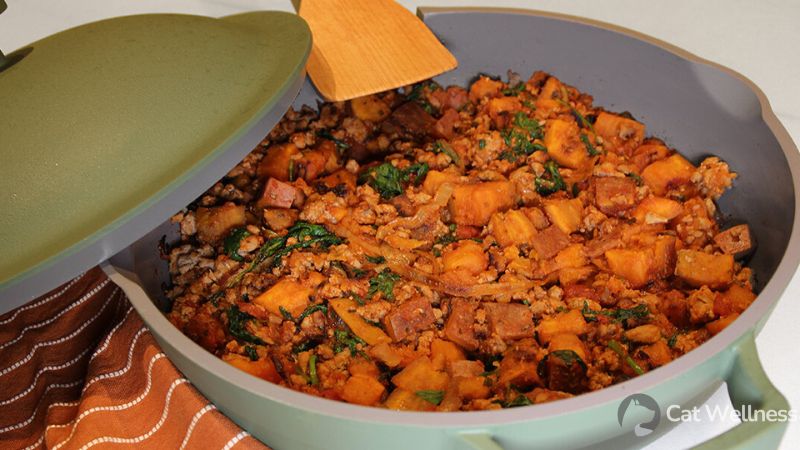
Ingredients:
- ½ cup cooked turkey;
- ¼ cup mashed sweet potato;
- ¼ cup steamed broccoli;
- Chicken broth.
Instructions:
- Combine all ingredients in a blender or food processor with a few tablespoons of chicken broth and blend until smooth.
- You can puree the elements with a smoother consistency or leave them as is for a chunkier meal.
- Serve once cooled, and store leftovers in the fridge for up to four days.
#4. Chicken and Rice Recipe
The chicken and rice combo is popular and effective. This simple yet soothing meal can help alleviate digestive issues in cats. Chicken, a lean protein source, is gentle on the stomach while providing essential nutrients.
Rice, on the other hand, acts as a binding agent and helps firm up loose stools. This bland combination is often recommended by veterinarians to relieve cats with sensitive stomachs or diarrhea.
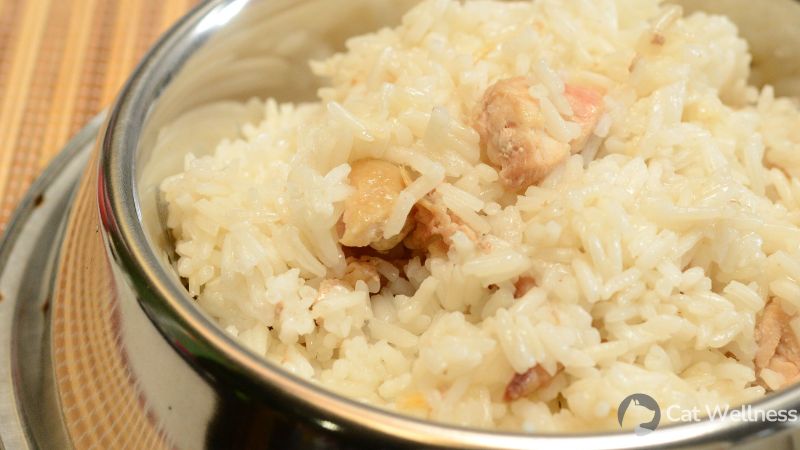
Ingredients:
- 1 cup cooked white rice;
- ½ cup cooked chicken;
- 1 teaspoon coconut oil;
- 1 tablespoon finely chopped parsley.
Instructions:
- Combine all ingredients in a blender or food processor and blend until smooth.
- Puree the mixture until it’s a smooth consistency.
- Allow to cool and serve according to your cat’s food portion.
- Store any leftovers in the fridge for up to three days.
#5. Tuna Recipe
Tuna is rich in Vitamin E and contains low levels of mercury, making it a nutritious choice for homemade cat food.
A straightforward way to incorporate tuna into your cat’s diet is by adding tiny morsels of shredded fish as a tasty topper to their meals. Additionally, canned tuna can be used in homemade cat food recipes.
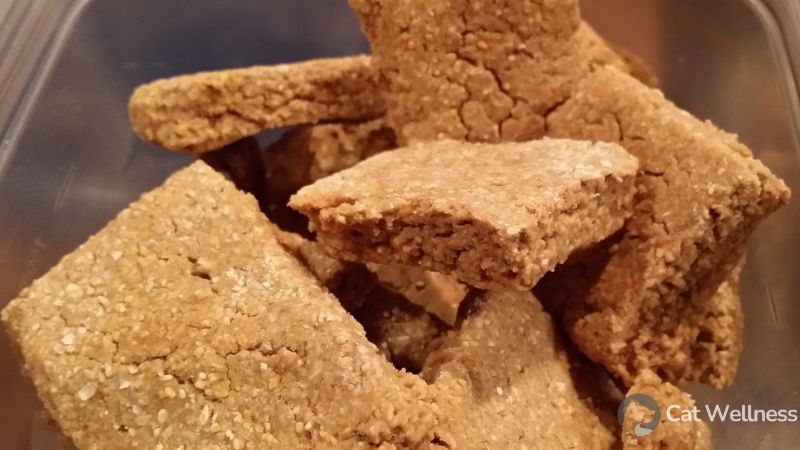
Ingredients:
- ½ cup tuna;
- ¼ cup carrot;
- 1 teaspoon olive oil;
Instructions:
- Wash and boil the carrot.
- Boil the tuna for three minutes and allow it to cool.
- Remove the bones from the fish.
- Combine all ingredients in a blender or food processor and blend until smooth.
- Serve at room temperature for your furbaby to enjoy.
#6. Eggcellent Beef Recipe
The Eggcellent Beef Recipe combines the nutritious power of beef and eggs to provide essential proteins and vitamins for your feline friend.
Eggs are an excellent source of high-quality protein, while beef offers essential nutrients like iron and B vitamins. This combination helps promote healthy digestion while ensuring your cat gets the nutrients for overall well-being.
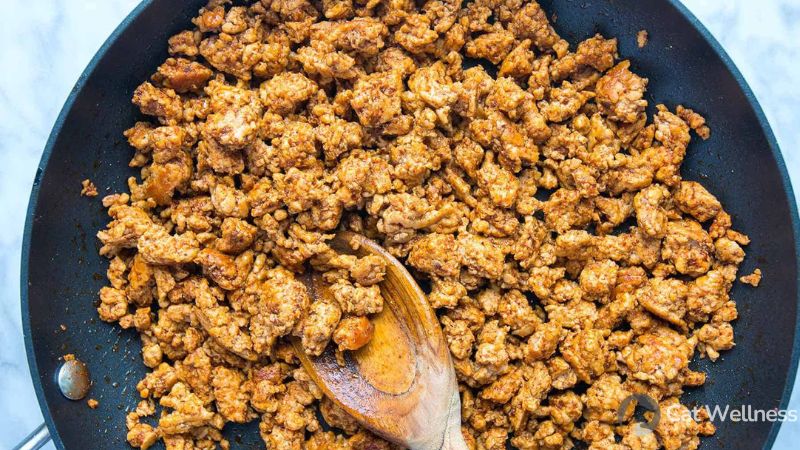
Ingredients:
- ½ cup ground beef;
- ¼ cup of scrambled egg;
- 4 tablespoons of alfalfa sprouts (minced).
Instructions:
- In a frying pan, cook your ground beef until it is brown.
- Allow to cool, and combine all ingredients in a bowl.
- Serve to your cat and refrigerate leftovers for up to three days.
Related Post: #5 Effective Homemade Cat Food Recipes for Gain Weight
Tips for Preparing and Feeding Homemade Cat Food for Sensitive Stomachs
Consult with a Veterinarian
You should consult a veterinarian before starting your cat on a homemade diet, especially if they have an upset stomach. A vet can provide guidance and ensure that the homemade cat food you prepare meets all their nutritional needs.
Gradually Introduce New Foods
To avoid digestive distress and upset stomachs in cats, you should introduce new foods gradually. Abruptly changing your cat’s diet can lead to symptoms such as diarrhea, vomiting, and loss of appetite.
To ensure a smooth transition, start by mixing a small amount of the new food with their current food and gradually increasing the ratio over several days or weeks.
Monitoring Your Cat’s Response
Regularly observe your cat for any signs of improvement or worsening of their digestive issues. Watch out for changes in appetite, stool quality, vomiting frequency, and overall energy levels.
By closely monitoring their behavior and wellbeing, you can ensure that the homemade food suits them well.
Proper Storage and Handling Practices
Please remember that homemade cat food, like human food, can spoil if not stored correctly.
To ensure the freshness and safety of the food, store it in the refrigerator and consume it within three days. This helps prevent bacteria growth that could lead to foodborne illnesses in cats and humans.
Also, be cautious with raw or undercooked meats used in homemade cat food as they pose a risk of bacterial contamination.
Ingredients to Avoid for a Cat with a Sensitive Stomach
Certain foods can trigger digestive issues and worsen their symptoms. Here are some elements to avoid for a cat with a sensitive stomach:
- High-Fat Foods: Beef, pork, milk, lamb, cheese, and other high-fat foods can be challenging for cats with sensitive stomachs to digest.
- Starchy Vegetables: Green peas, beet pulp, potato, and sweet potato are starchy vegetables that can cause stomach issues in cats.
- Meat By-products and Grain By-products: Ingredients like meat and grain by-products should be avoided in homemade cat food for sensitive stomachs.
- Soy Products: Soybean meal is another ingredient that can contribute to digestive problems in cats with sensitive stomachs.
- Dairy Products: Cow’s milk and other dairy products should be avoided for cats with sensitive stomachs. Cats are lactose intolerant and may experience digestive upset if they consume dairy.
- Non-Fermentable Fibers: Oat fiber, peanut hulls, psyllium gum, soy hulls, citrus pulp, and lactulose are non-fermentable fibers that can act like cellulose in a cat’s digestive system.
FAQs
Can I Add Supplements to Homemade Cat Food for an Upset Stomach?
Yes, you can add supplements to homemade cat food for an upset stomach, but it is recommended to consult your veterinarian before doing so. They can guide you on appropriate supplements that can aid in digestive health without causing any harm.
Can I Switch Back to Commercial Cat Food after Feeding Homemade Food for My Cat’s Upset Stomach?
Yes, you can switch back to commercial cat food after feeding homemade food for your cat’s upset stomach. However, it is recommended to transition gradually, mixing increasing amounts of commercial food with homemade food over several days to avoid sudden digestive issues.
How Should I Introduce Homemade Cat Food for an Upset Stomach to My Cat’s Diet?
Mix a small portion of the homemade food with your cat’s regular food. Over a week, gradually increase the proportion of homemade food while decreasing the amount of old food. This will give your cat’s digestive system time to adjust.
Can I Freeze Homemade Cat Food for an Upset Stomach?
Yes, you can freeze homemade cat food for convenience. Freezing can help preserve the freshness of the food and make it easier to prepare larger batches in advance.
Final Thoughts
Making homemade cat food for a sensitive stomach is not tricky, but it takes time and effort. However, the benefits of homemade cat food are usually worth the extra effort.
There are many options, whether a bland chicken and rice recipe or one with fish and sweet potato. Remember to consult with a veterinarian, gradually introduce new foods, and monitor your cat’s response.
Recommended Reading

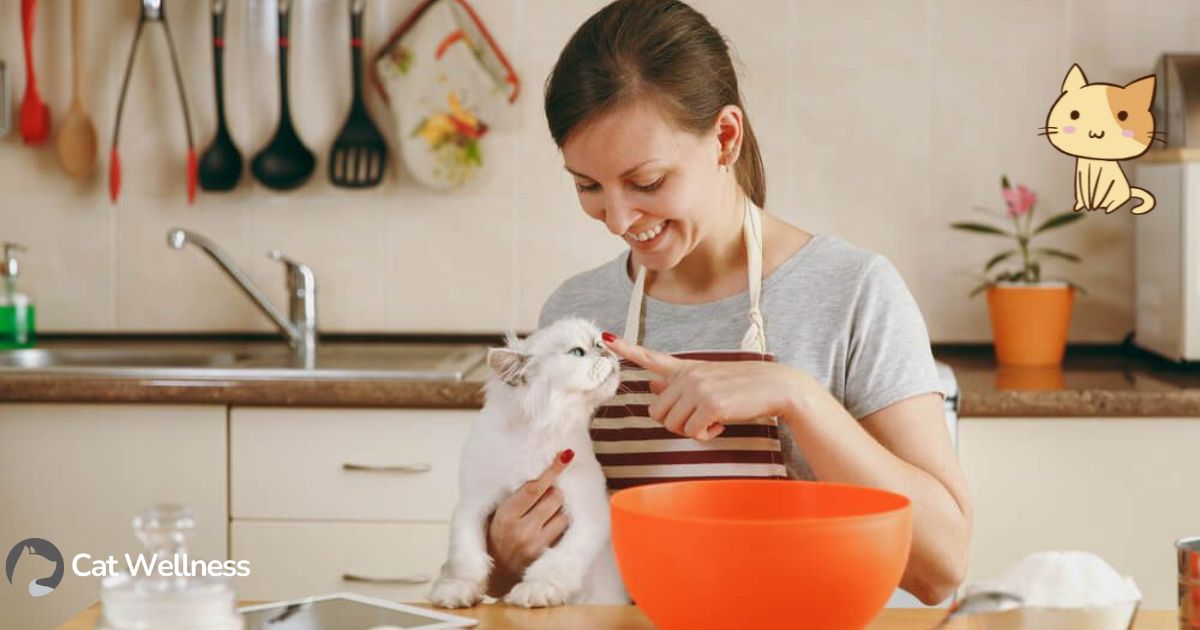


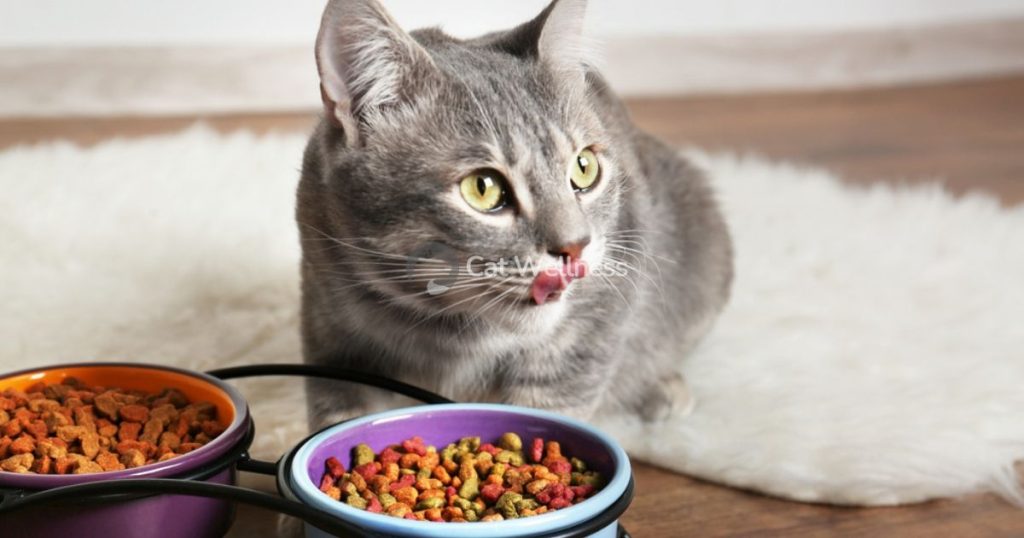
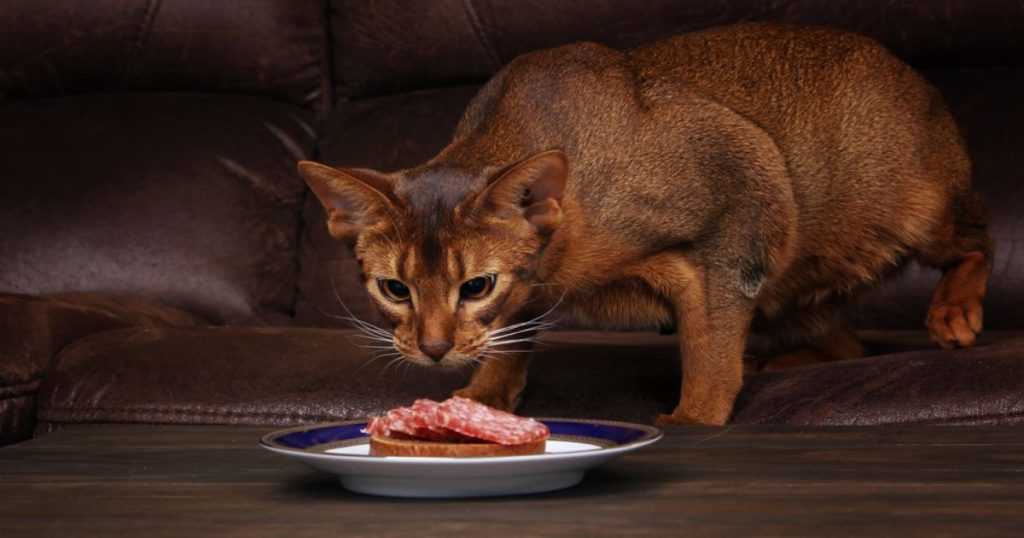
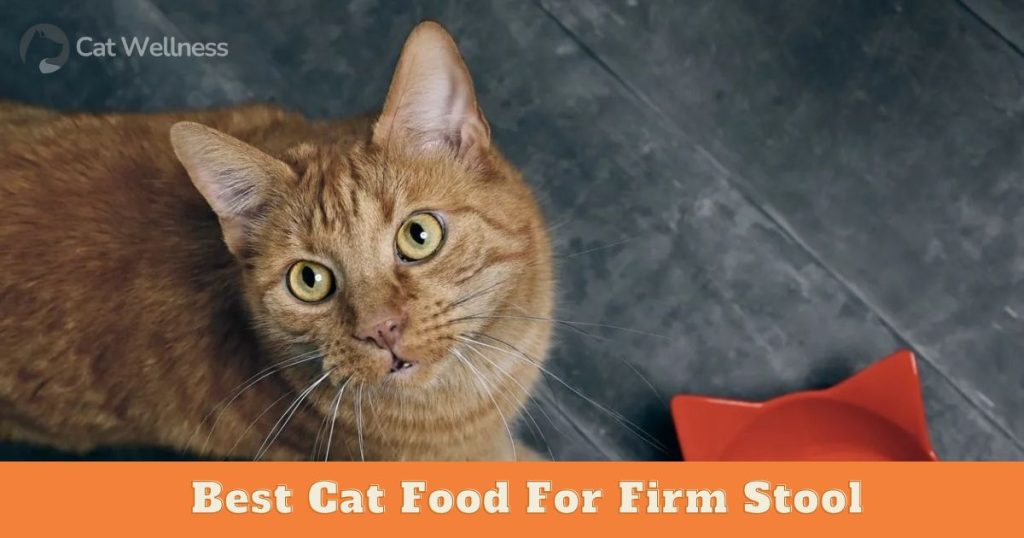
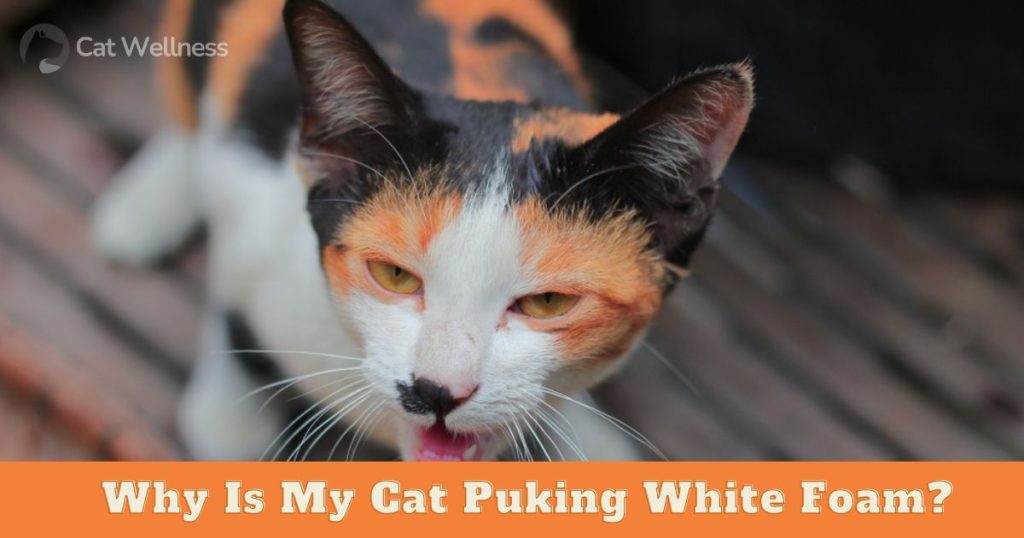
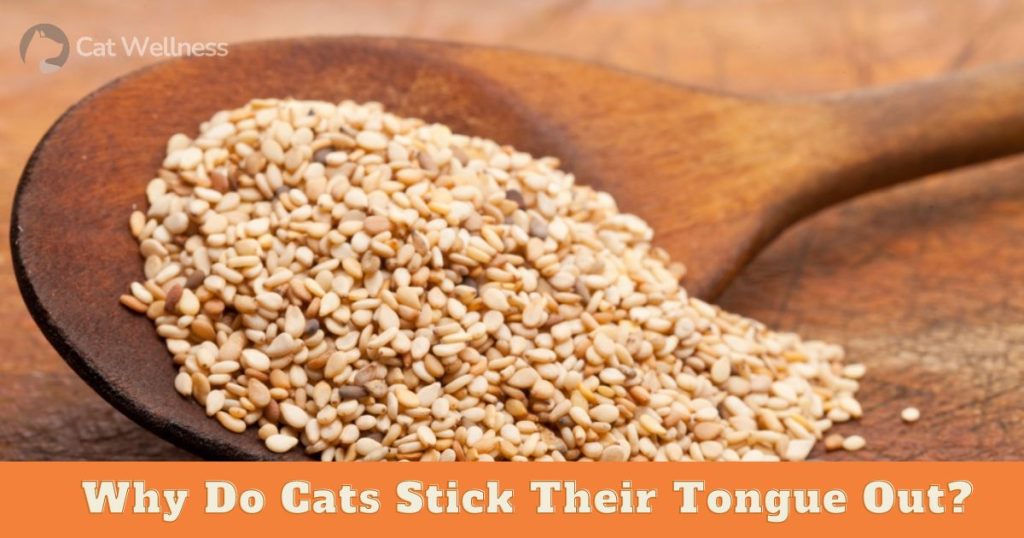
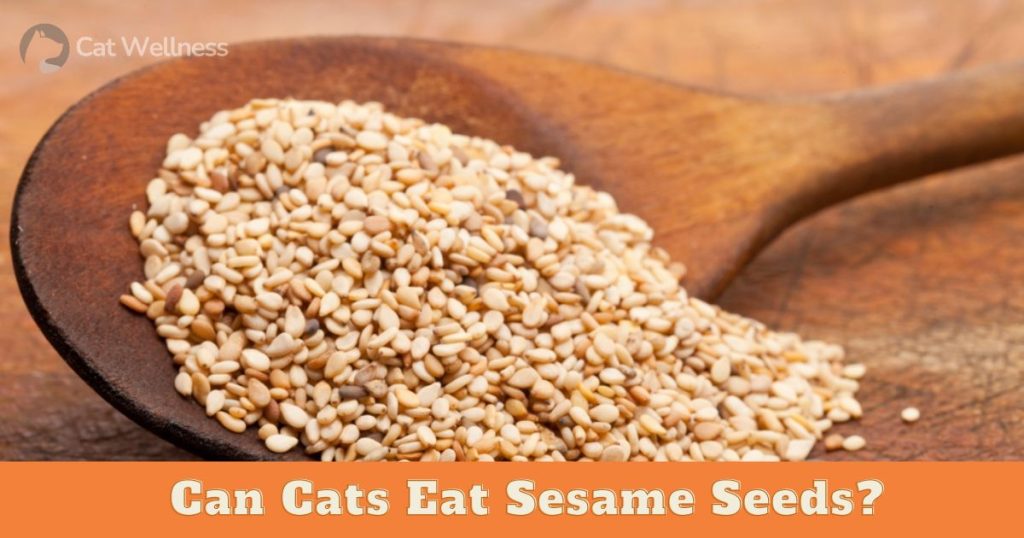

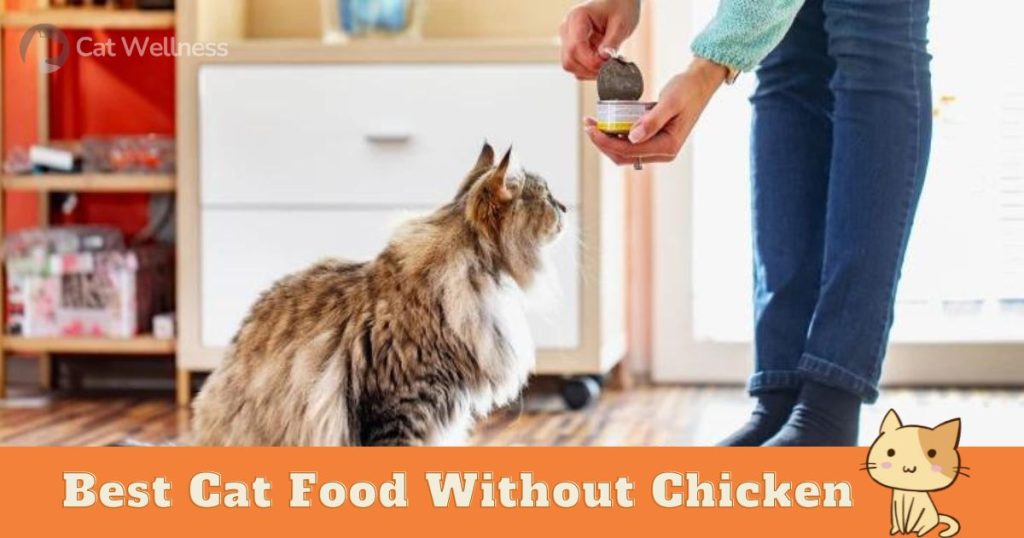
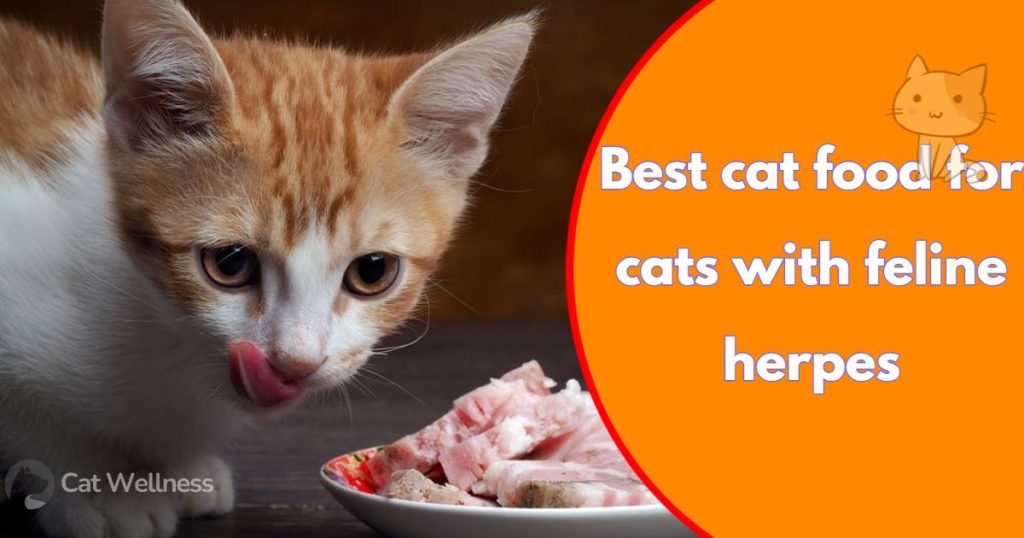
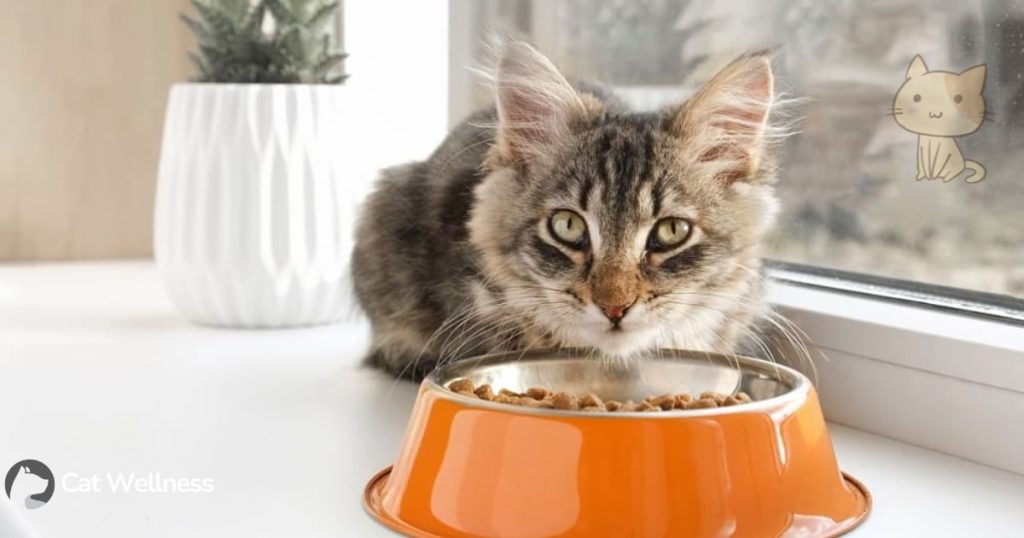
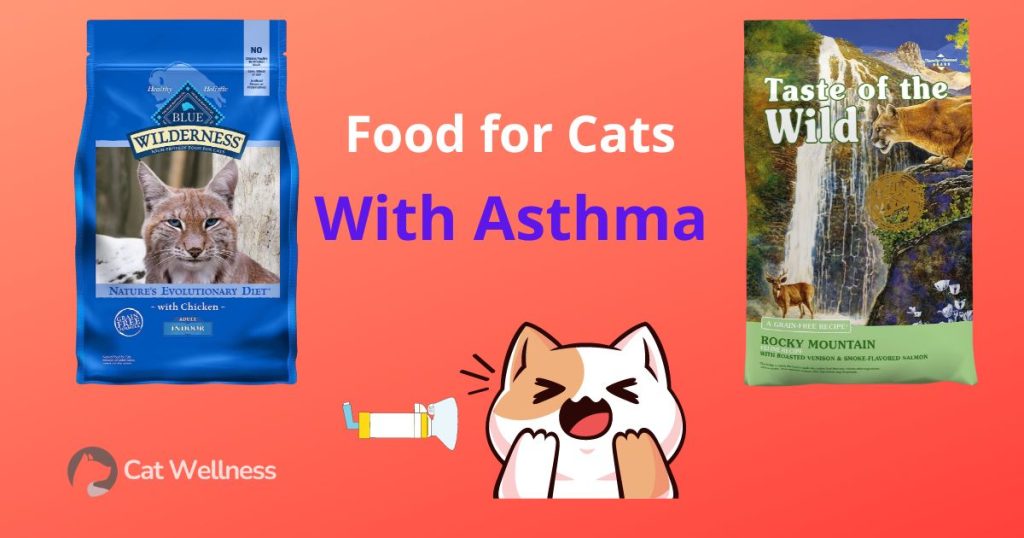
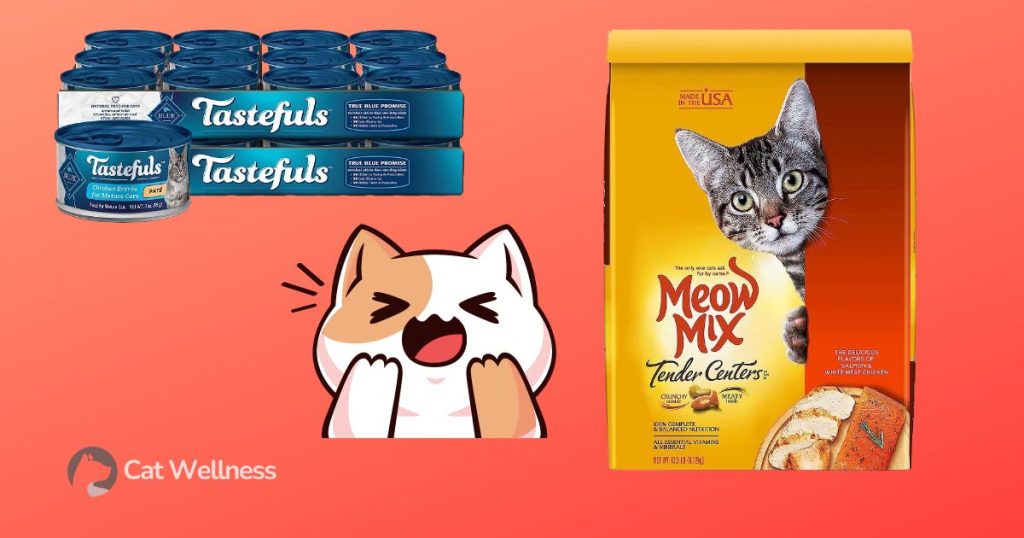
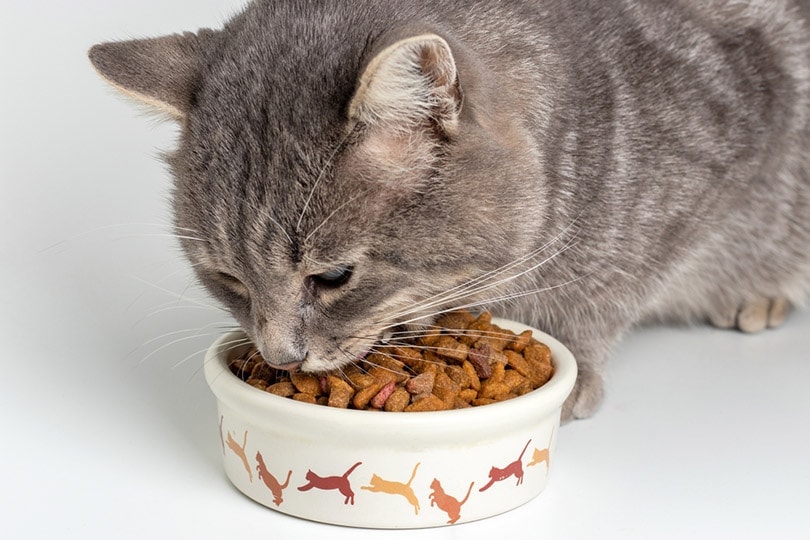
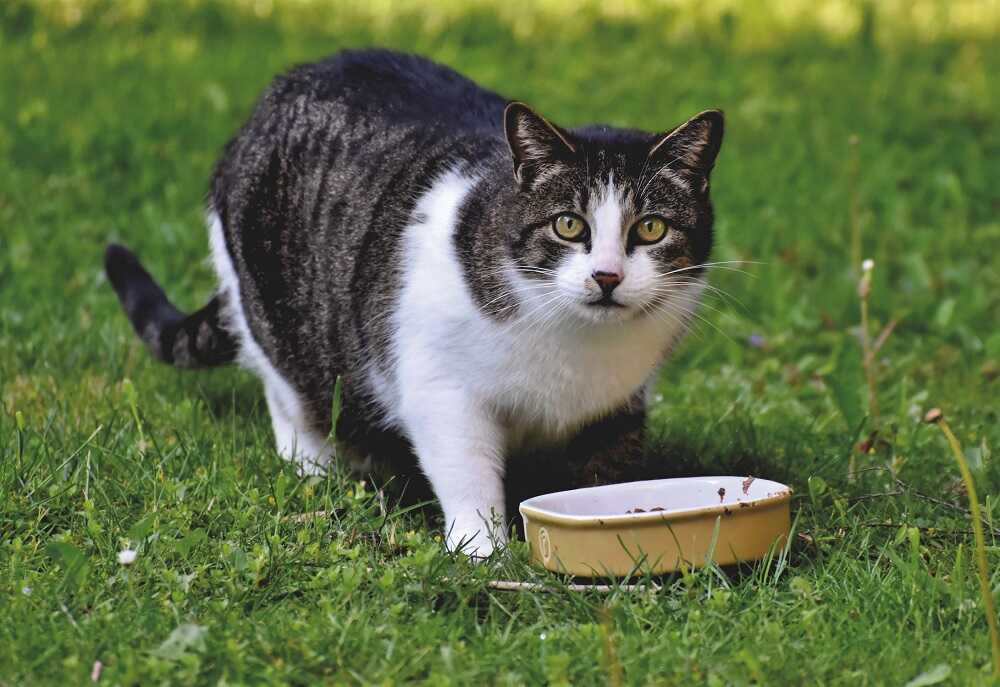
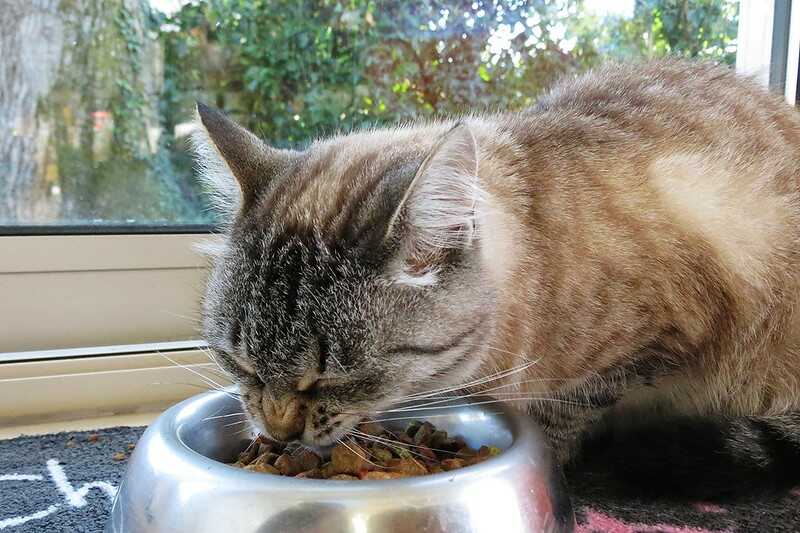
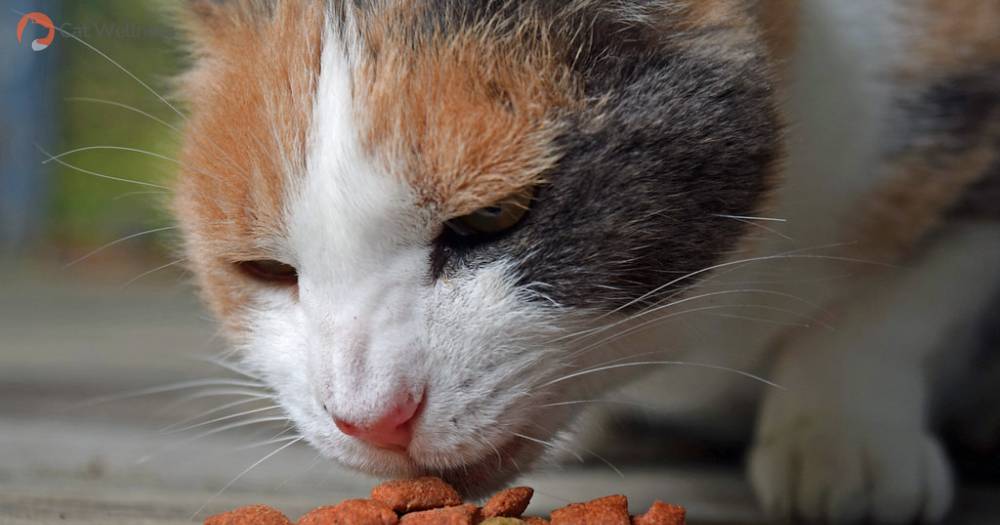
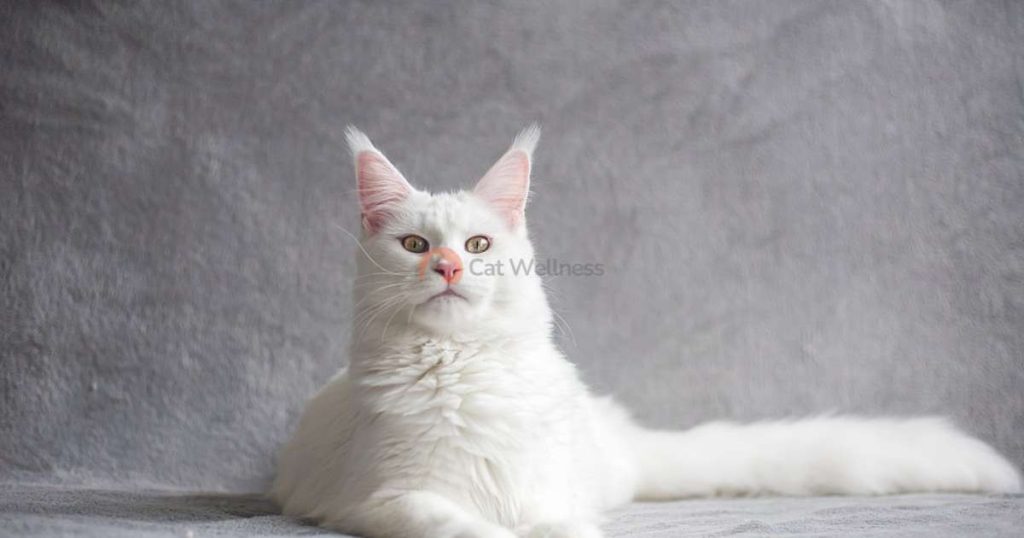







My cats, one more than the other two, enjoy chewing on plastic wrap, such as around toilet paper, bottles of water, the stronger seems better to them….I can’t really say they are eating this, may be just chewing it….not sure! Is there a way, other than shewing them away, or taking it away? All three at some times, vomit, and working on recipes for home made food….None of the store brands I’ve bought have helped their problems. Been vomiting from day one….5 weeks old, until now, March, will be 3 yrs old….they are large & heavy!